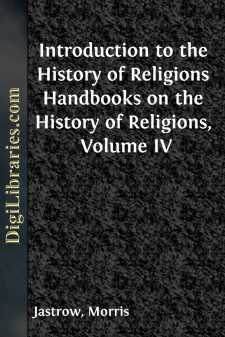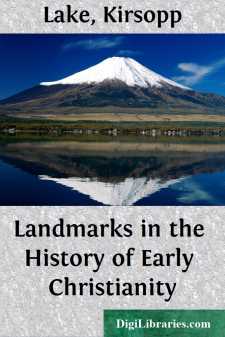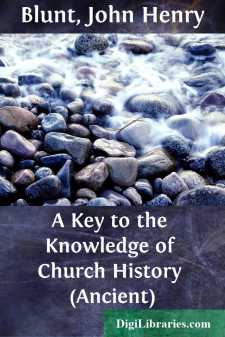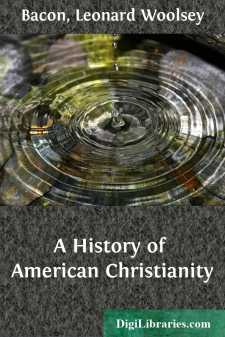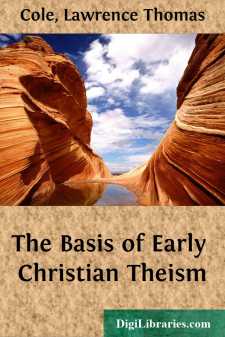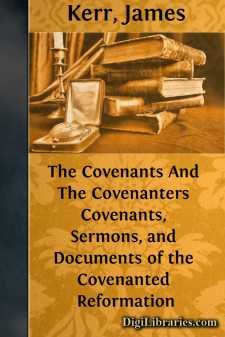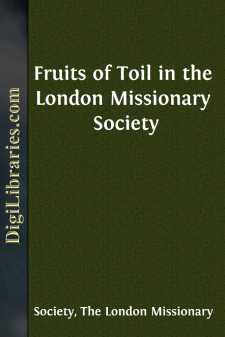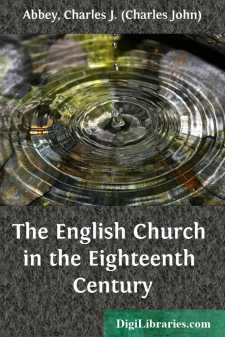Religion
- Agnosticism 2
- Antiquities & Archaeology 21
- Atheism 12
- Biblical Criticism & Interpretation 15
- Biblical Meditations 2
- Biblical Studies 8
- Buddhism 8
- Christian Church 52
- Christian Education 5
- Christian Life 26
- Christianity 59
- Cults 2
- Devotional 4
- Eastern 2
- Education 4
- Eschatology 1
- Ethics 3
- General 60
- Gnosticism 1
- Hinduism 11
- History
- Holidays 10
- Islam 8
- Judaism 3
- Meditations 2
- Monasticism 1
- Mysticism 11
- Philosophy 2
- Prayer 26
- Prayerbooks 5
- Religion & Science 12
- Sermons 54
- Spirituality 51
- Theism 2
- Theology 17
- Theosophy 15
History Books
Sort by:
FOREWORD Charles A. Stewart's A Virginia Village is a charming depiction of the early days of Falls Church. It is the earliest attempt to put on paper the story of the Falls Church area. In addition to interesting stories about people and organizations and life generally in the small town of 80 years ago, the book contains photographs of 107 Falls Church houses, stores, and churches then standing....
more...
by:
Morris Jastrow
CHAPTER I NATURE OF RELIGION 1. It appears probable that primitive men endowed with their own qualities every seemingly active object in the world. Experience forced them to take note of the relations of all objects to themselves and to one another. The knowledge of the sequences of phenomena, so far as the latter are not regarded as acting intentionally on him, constitutes man's science and...
more...
by:
Kirsopp Lake
GALILEE At first sight the historian of religions appears to be faced by a number of clearly distinguished entities, to each of which he feels justified in giving the name of a separate religion; but on further consideration it becomes obvious that each one of these entities has been in a condition of flux throughout its history. Each began as a combination or synthesis of older forms of thought with...
more...
by:
John Henry Blunt
CHAPTER I A.D. 33-A.D. 38 Before entering upon an account of the Foundation and After-History of the Christian Church, it may be well to consider what that Church really is. Twofold nature of the Church. The Church may be regarded in a twofold aspect, as an external Corporation, and as a spiritual Body. 1. An external Kingdom. In the first light it is a Kingdom, in the world, though not of the world,...
more...
CHAPTER I. PROVIDENTIAL PREPARATIONS FOR THE DISCOVERY OF AMERICA—SPIRITUAL REVIVAL THROUGHOUT CHRISTENDOM, AND ESPECIALLY IN THE CHURCH OF SPAIN. The heroic discovery of America, at the close of the fifteenth century after Christ, has compelled the generous and just admiration of the world; but the grandeur of human enterprise and achievement in the discovery of the western hemisphere has a less...
more...
CHAPTER IINTRODUCTION A question which every author ought to ask of himself before he sends forth his work, and one which must occur to every thoughtful reader, is the inquiry, Cui bono?—what justification has one for treating the subject at all, and why in the particular way which he has chosen? To the pertinency of this question to the present treatise the author has been deeply sensible, and...
more...
by:
James Kerr
Every person who enters rightly into covenant with God is on the pathway to gladness and honour. He comes into sympathy with Him who from eternity made a covenant with His chosen. He gives joy to Him who loves to see His people even touch the hem of His garments, or eagerly grasp His Omnipotent hand. The Spirit of God on the heart of the believer draws him into the firmest attachment to the Beloved....
more...
Fruits of Toil IN THE When our fathers established this Society they were met by a formidable array of difficulties of which we know nothing. Gathered in fellowship when the infidel principles of the French Revolution were doing deadly work, and soon involved in the national struggle of the great war, they found little to encourage them in the outward aspects of their position. Christian men were few;...
more...
CHAPTER I. INTRODUCTORY. The claim which the intellectual and religious life of England in the eighteenth century has upon our interest has been much more generally acknowledged of late years than was the case heretofore. There had been, for the most part, a disposition to pass it over somewhat slightly, as though the whole period were a prosaic and uninteresting one. Every generation is apt to...
more...
PREFACE In the Second Series of his Asiatic Studies the late Sir Alfred Lyall republished a number of articles that he had contributed to various Reviews up to the year 1894. After that date he wrote frequently, especially for the Edinburgh Review, and he left amongst his papers a note naming a number of articles from which he considered that a selection might be made for publication. The present...
more...



